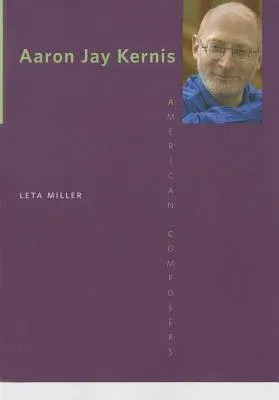Winner of both the Pulitzer Prize and the Grawemeyer Award, Aaron Jay
Kernis achieved recognition as one of the leading composers of his
generation while still in his thirties. Since then his eloquent yet
accessible style, emphasis on melody, and willingness to engage popular
as well as classical forms has brought him widespread acclaim and
admiring audiences.
Leta Miller's biography offers the first survey of the composer's life
and work. Immersed in music by middle school, and later training under
Theodore Antoniou, John Adams, Jacob Druckman, and others, Kernis
rejected the idea of distancing his work from worldly concerns and
composed on political themes. His Second Symphony, from 1991, engaged
with the first Gulf War; 1993's Still Moment with Hymn was a reaction
to the Bosnian Genocide; and the next year's Colored Field and 1995's
Lament and Prayer dealt with the Holocaust. Yet Kernis also used
sources as disparate as futurist agitprop and children's games to
display humor in his work. Miller's analysis addresses not only Kernis's
wide range of subjects but also the eclecticism that has baffled
critics, analyzing his dedication to synthesis and the themes consistent
in his work. Informed and engaging, Aaron Jay Kernis gives a rare
mid-career portrait of a major American cultural figure.

